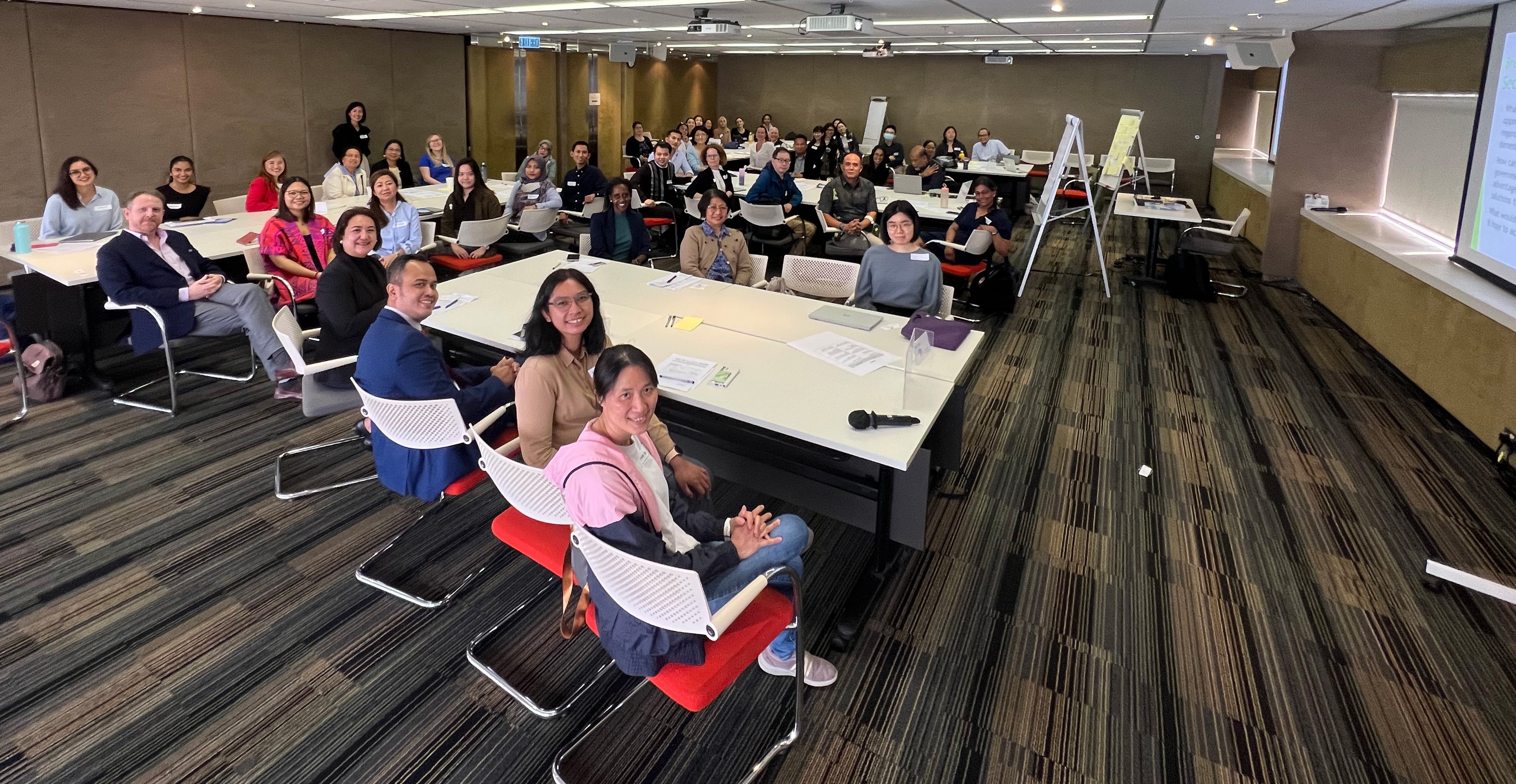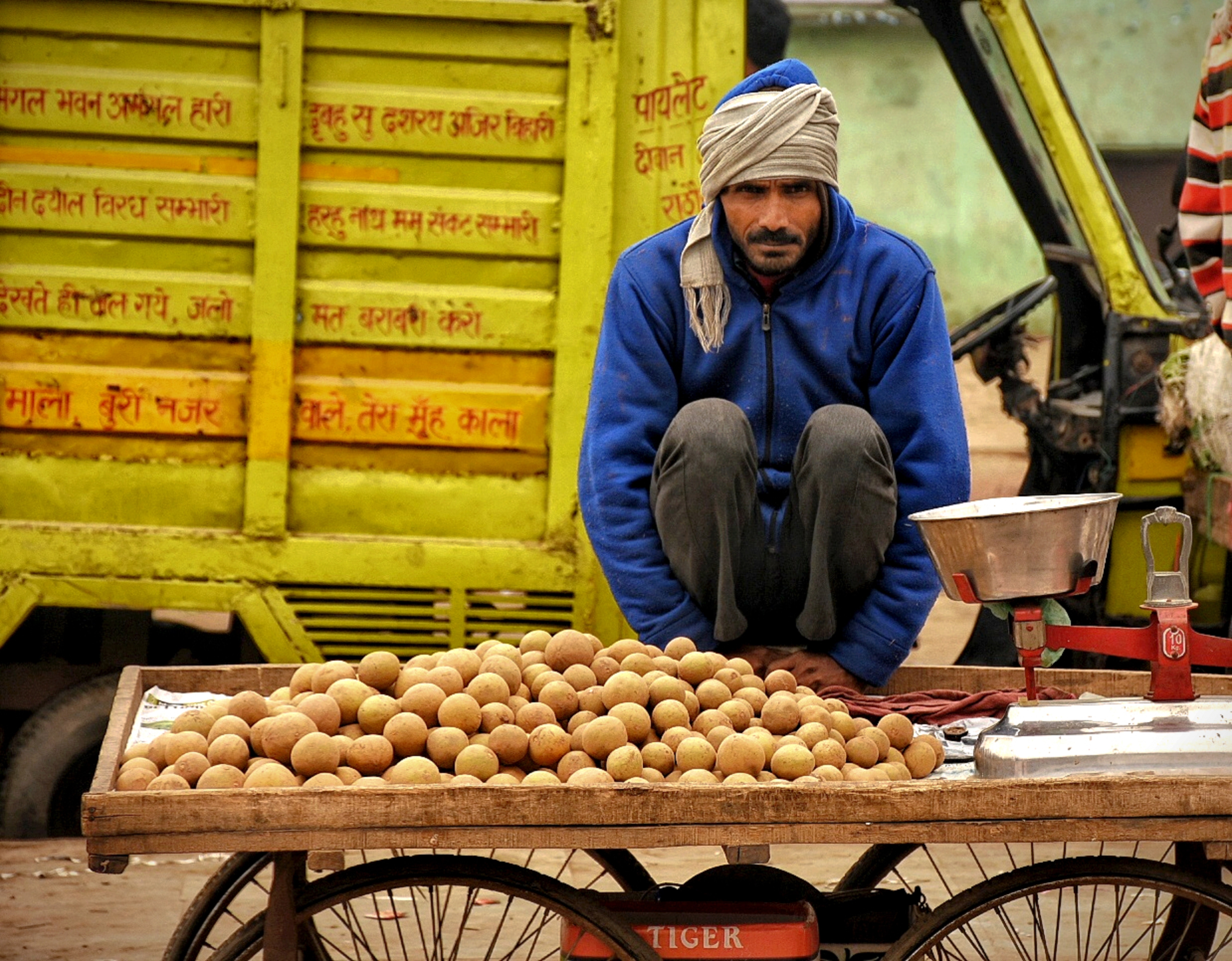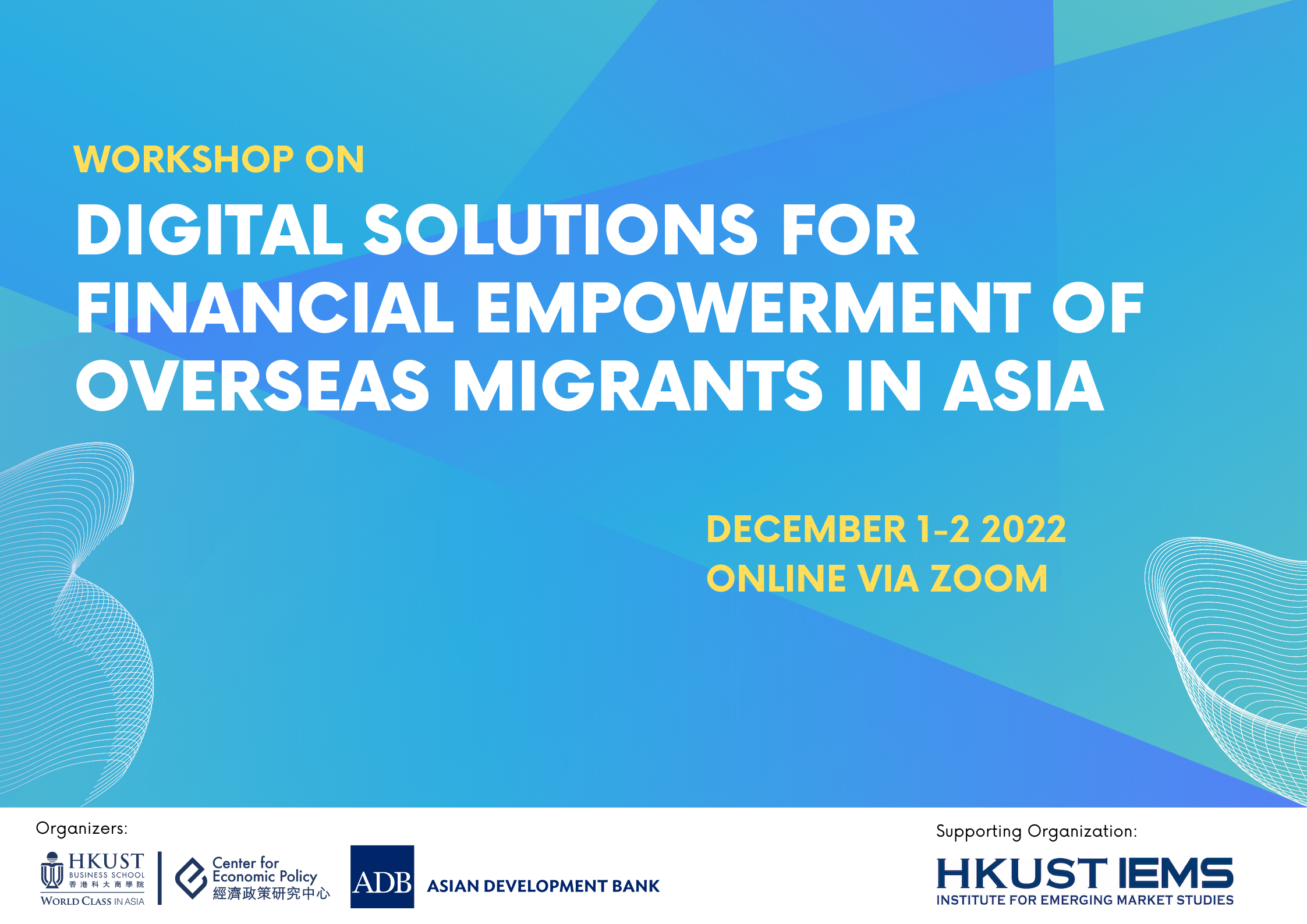More about HKUST
 Seminar, Lecture, Talk
Lunchtime Brown-bag Seminars in Spring 2026
The Center for Economic Policy is organizing lunchtime brown-bag seminars in the Spring term at LSK5047/6045. It will be open to all faculty and students who want to attend. The one-hour seminar will be presented by CEP research affiliates, postdoctoral fellows, or HKUST PhD students. There will be a Q&A session in the end.
The schedule of the seminars in the Spring term is as follows:
Seminar, Lecture, Talk
Lunchtime Brown-bag Seminars in Spring 2026
The Center for Economic Policy is organizing lunchtime brown-bag seminars in the Spring term at LSK5047/6045. It will be open to all faculty and students who want to attend. The one-hour seminar will be presented by CEP research affiliates, postdoctoral fellows, or HKUST PhD students. There will be a Q&A session in the end.
The schedule of the seminars in the Spring term is as follows:
- 2026-02-10 ~ 2026-04-14
- 12:00pm - 1:00pm
 Seminar, Lecture, Talk
Lunchtime Brown-bag Seminars in Fall 2025
The Center for Economic Policy is organizing lunchtime brown-bag seminars in Fall term at LSK6045. It will be open to all faculty and students who want to attend. In the one-hour seminar, there will be a presentation by CEP research affiliates, postdoctoral fellow or HKUST PhD students, followed by a Q&A session.
The schedule of the seminars in Fall term is as follows:
Seminar, Lecture, Talk
Lunchtime Brown-bag Seminars in Fall 2025
The Center for Economic Policy is organizing lunchtime brown-bag seminars in Fall term at LSK6045. It will be open to all faculty and students who want to attend. In the one-hour seminar, there will be a presentation by CEP research affiliates, postdoctoral fellow or HKUST PhD students, followed by a Q&A session.
The schedule of the seminars in Fall term is as follows:
- 2025-09-30 ~ 2025-12-16
- 12:00pm - 1:00pm
 Conference, Symposium, Forum, Workshop
Roundtable meeting on Empowerment and Wellness of Migrant Domestic Workers: Explorations for Cross-sector Collaborations between Field & Academic Experts
Migrant domestic workers (MDWs) contribute to Hong Kong society both through their care work, and by enabling labour force participation, mainly of Hong Kong women. Many observers implicitly assume this is “win-win” for both sides, and specifically that this “importation” of low-skilled labour creates both short and long-term gain for the migrants.
Conference, Symposium, Forum, Workshop
Roundtable meeting on Empowerment and Wellness of Migrant Domestic Workers: Explorations for Cross-sector Collaborations between Field & Academic Experts
Migrant domestic workers (MDWs) contribute to Hong Kong society both through their care work, and by enabling labour force participation, mainly of Hong Kong women. Many observers implicitly assume this is “win-win” for both sides, and specifically that this “importation” of low-skilled labour creates both short and long-term gain for the migrants.
- 2023-03-20
- 2:00pm - 5:30pm
 Publications
Why Micro-Credit May Leave Women Worse Off: Non-Cooperative Bargaining and the Marriage Game in South Asia
Micro-credit programmes targeting women continue to grow in South Asia, although research suggests that wives frequently hand over loans to their husbands. Women may also be unable to control the income generated by micro-enterprises. This article presents an intra-household bargaining model explaining these findings and showing how credit may leave women worse off, while benefiting men. This game-theoretic model also shows why a woman might rationally choose to give her loan to her husband even though she does not expect to benefit and knows he may not repay.
By Sujata Balasubramanian
Publications
Why Micro-Credit May Leave Women Worse Off: Non-Cooperative Bargaining and the Marriage Game in South Asia
Micro-credit programmes targeting women continue to grow in South Asia, although research suggests that wives frequently hand over loans to their husbands. Women may also be unable to control the income generated by micro-enterprises. This article presents an intra-household bargaining model explaining these findings and showing how credit may leave women worse off, while benefiting men. This game-theoretic model also shows why a woman might rationally choose to give her loan to her husband even though she does not expect to benefit and knows he may not repay.
By Sujata Balasubramanian
 Publications
Is the PDS Already a Cash Transfer? Rethinking India’s Food Subsidy Policies
Critics argue that India’s mismanaged Public Distribution System (PDS), which sells subsidised cereals to poor families, should be replaced by cash transfers. Others fear cash may be misused. Using National Sample Survey data, this article demonstrates that families treat additional PDS subsidies wholly as a source of cash – exactly like a cash transfer. More worryingly, cereal consumption has not increased, despite higher real subsidies. Moreover, neither the PDS nor cash transfers are likely to raise total food expenditure in poor families.
By Sujata Balasubramanian
Publications
Is the PDS Already a Cash Transfer? Rethinking India’s Food Subsidy Policies
Critics argue that India’s mismanaged Public Distribution System (PDS), which sells subsidised cereals to poor families, should be replaced by cash transfers. Others fear cash may be misused. Using National Sample Survey data, this article demonstrates that families treat additional PDS subsidies wholly as a source of cash – exactly like a cash transfer. More worryingly, cereal consumption has not increased, despite higher real subsidies. Moreover, neither the PDS nor cash transfers are likely to raise total food expenditure in poor families.
By Sujata Balasubramanian
 Research Affiliate
Sujata Balasubramanian
Adjunct Assistant Professor, Division of Social Science
Sujata Balasubramanian is a development economist who works on public policy issues related to South Asia, and especially India. She has a Ph.D. in Political Economy and Public Policy from the University of Southern California.
Research Affiliate
Sujata Balasubramanian
Adjunct Assistant Professor, Division of Social Science
Sujata Balasubramanian is a development economist who works on public policy issues related to South Asia, and especially India. She has a Ph.D. in Political Economy and Public Policy from the University of Southern California.
 Publications
Expanding Footprints: The Impact of Passenger Transportation on Corporate Locations
This article investigates how transportation networks shape firms' geographic footprint by reducing monitoring costs of distant investments. Exploiting the staggered expansions of China's passenger high-speed rail (HSR) network, the authors document that the amount of intercity investment between a pair of cities increases by 45% with the introduction of an HSR line connecting the cities. They enhance the causal inference by applying high-dimensional fixed effects, and focusing on city pairs that are "accidentally" connected in the network.
By Yatang Lin, Yu Qin, Johan Sulaeman, Jubo Yan, Jialiang Zhang
Publications
Expanding Footprints: The Impact of Passenger Transportation on Corporate Locations
This article investigates how transportation networks shape firms' geographic footprint by reducing monitoring costs of distant investments. Exploiting the staggered expansions of China's passenger high-speed rail (HSR) network, the authors document that the amount of intercity investment between a pair of cities increases by 45% with the introduction of an HSR line connecting the cities. They enhance the causal inference by applying high-dimensional fixed effects, and focusing on city pairs that are "accidentally" connected in the network.
By Yatang Lin, Yu Qin, Johan Sulaeman, Jubo Yan, Jialiang Zhang
 Publications
When student incentives do not work: Evidence from a field experiment in Malawi
James Berry, Hyuncheol Bryant Kim and Hyuk Harry Son study how the structure of tournament incentive schemes in education can influence the level and distribution of student outcomes. Through a field experiment among upper-primary students in Malawi, they evaluate two scholarship programs: a Population-based scholarship that rewarded overall top performers on an exam and a Bin-based scholarship that rewarded the top performers within smaller groups of students with similar baseline scores.
By Hyuncheol Bryant Kim (on leave), James Berry, Hyuk Harry Son
Publications
When student incentives do not work: Evidence from a field experiment in Malawi
James Berry, Hyuncheol Bryant Kim and Hyuk Harry Son study how the structure of tournament incentive schemes in education can influence the level and distribution of student outcomes. Through a field experiment among upper-primary students in Malawi, they evaluate two scholarship programs: a Population-based scholarship that rewarded overall top performers on an exam and a Bin-based scholarship that rewarded the top performers within smaller groups of students with similar baseline scores.
By Hyuncheol Bryant Kim (on leave), James Berry, Hyuk Harry Son
 Publications
Agglomeration, Misallocation, and (the Lack of) Competition
Industrial agglomeration policies may limit competition. This study develops, validates, and applies a novel approach for measuring competition based on the comovement of markups and market shares among firms in the same location and industry. Then this study develops a model of how this reduction in competition affects aggregate income. In this paper, the authors apply their approach to the well-known special economic zones (SEZs) of China. This paper estimates that firms in SEZs exhibit cooperative pricing almost three times as intensively as firms outside SEZs.
By Yao Amber Li, Wyatt J. Brooks, Joseph P. Kaboski
Publications
Agglomeration, Misallocation, and (the Lack of) Competition
Industrial agglomeration policies may limit competition. This study develops, validates, and applies a novel approach for measuring competition based on the comovement of markups and market shares among firms in the same location and industry. Then this study develops a model of how this reduction in competition affects aggregate income. In this paper, the authors apply their approach to the well-known special economic zones (SEZs) of China. This paper estimates that firms in SEZs exhibit cooperative pricing almost three times as intensively as firms outside SEZs.
By Yao Amber Li, Wyatt J. Brooks, Joseph P. Kaboski


